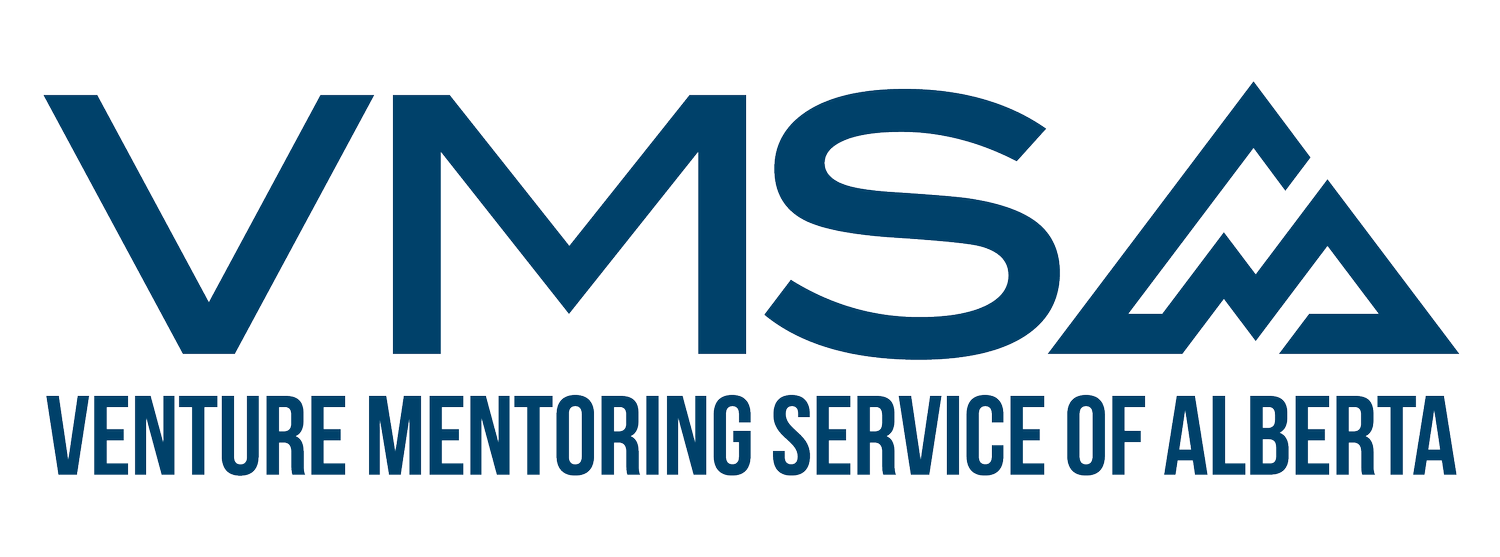What is a Mentor?
In the VMSA program we have strong parameters around how we expect Mentors to support entrepreneurs and what Mentee-Mentor relationships should look like. Many of these expectations derive from our relationship with Roy Group, a leadership development firm which created a Practice of Coaching framework and training that all VMSA Mentors experience when they join VMSA.
The term Mentor is oftentimes used interchangeably with “coach” and “advisor” within start up and scale up spaces. The following series digs into a small portion of the Practice of Coaching training, which helps identify and define the different tools a Mentor can use when supporting a Mentee. The following article is the first of a five part series from Iain Duncan, Practice Lead at Roy Group, diving into mentorship.
Mentor
Our Seriously Strong Convictions About the Word
Roy Group is incredibly excited to be sharing a new series of writings with the Venture Mentoring Services of Alberta (VMSA) that will focus on some of our work about Mentors and mentorship. This is the first in that series and will lay some important foundations for the articles to follow.
As a leadership development firm, and for those of you who know us, we are deeply curious about the conduct of great leaders. In exploring their conduct, we have found extraordinary examples from a specific group of individuals; the people we call Mentors. Their leadership teaches us, guides us towards right action and inspires us to believe more in our ability to do incredible things.
For more than twenty years we have closely studied the patterns in the stories of the people who have earned the word Mentor in someone else’s life. Over the course of time we have developed some ridiculously strong convictions about the word Mentor. You don’t have to agree with them, but we thought we should share them with you up front in this series.
The first conviction is that Mentor is a gift word, meaning that you do not get to call yourself a mentor, only someone else can call you that because of who you are in their life. That’s a contentious conviction when presented to a group of people who have been asked to be Mentors to others, but the distinction is important to us. We also believe that the spirit of that conviction typically matches very well with the folks who volunteer to be a part of the VMSA community(The Mentor DNA). In our experience, it is a community of people who have reached a point in their lives where they are hungry to earn that word.
Mentor is a gift word
Our second conviction is that Mentor is a noun, not a verb. We believe that the word does the most good when its meaning is reserved as someone you are to another person, not something you do to them. This distinction came about as we tried to picture what was happening in a room when someone is “mentoring” another person. It was clear to us that those conversations could look a lot of different ways.
Mentor is a noun, not a verb
These convictions, combined with our desire to be able to emulate the behaviours of these special people, caused us to embark on a research project to understand what it is that Mentors do to earn that word in another person’s life. This series will share with you some of the insights from that work, with each article to come focusing on one of the four behaviours we noticed consistently across our research. What we learned is that Mentors are highly discerning about how they conduct themselves. They are expert at identifying when it is time to:
Set an example for us.
Lay out great instruction.
Translate their experience into incredible advice.
Be curious about our thinking and push it further.
These four areas are outlined in the graphic below.
We will be exploring them one by one and hope that you’ll glean new insights into your work in this incredible community as you read. And please don’t hesitate to reach out with questions, comments or your own observations.



